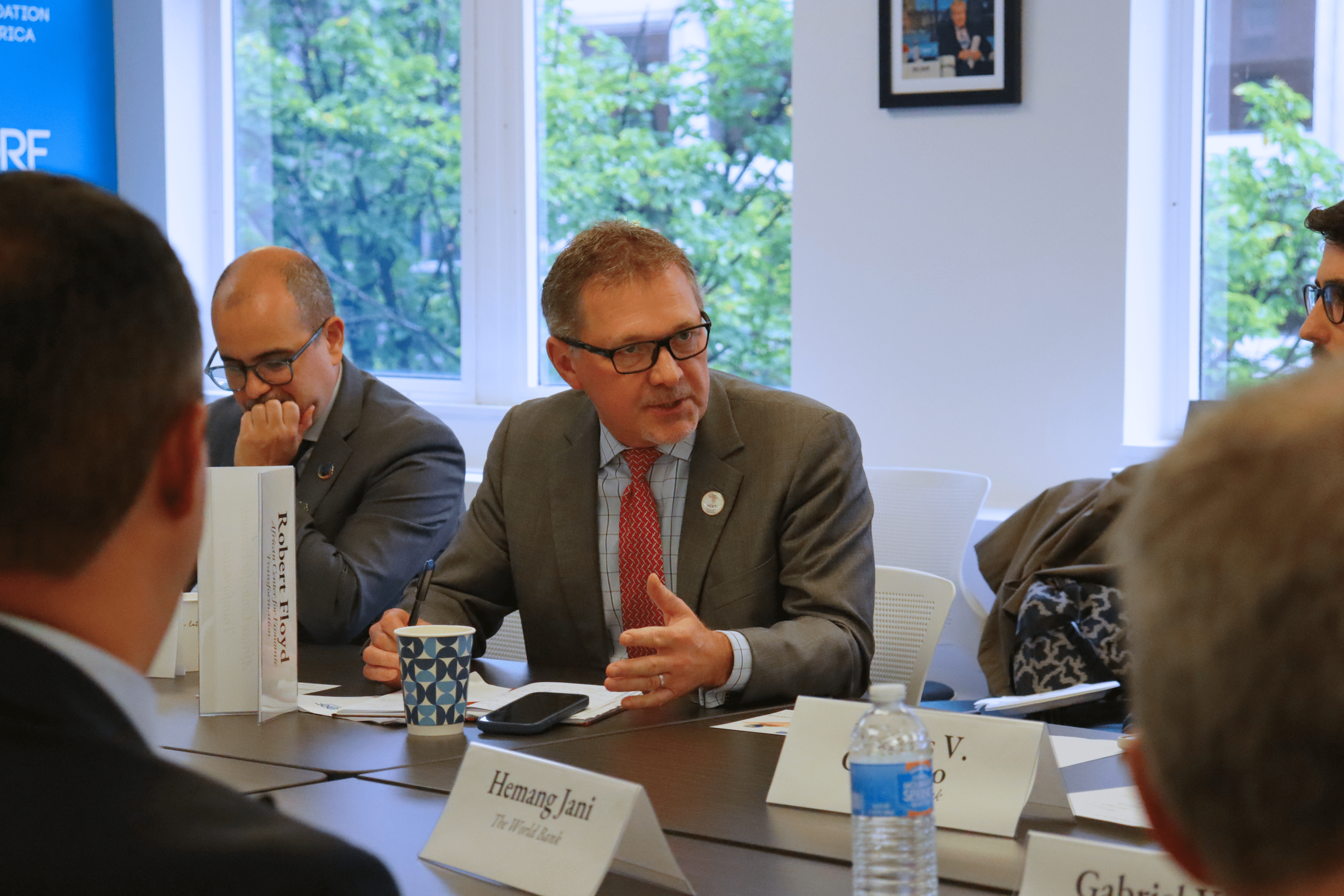On October 14, ORF America hosted an in-person, closed-door roundtable on “Bridging the Sustainable Financing Gap: Role of Global South Cooperation.” The discussion gathered senior policymakers, development finance leaders, and scholars to explore how emerging economies can adjust international financing mechanisms to meet increasing sustainable development needs.
The event also featured the release of a new ORF America paper, “Breaking the Trap: Debt Dynamics and Sustainable Finance for the Global South,” which examines the financial reforms needed for developing economies to escape the debt trap, invest in sustainable development, and manage public debt.
Held alongside the World Bank–IMF Annual Meetings and before COP30 in Brazil, the roundtable considered how Global South nations can reshape financial cooperation, harness innovative tools, and strengthen institutional capacity to close widening financing gaps across climate, energy, and digital transformations.
Key insights included:
Rethinking Global Finance Structures: Current financing systems are misaligned, with most climate and development funds provided as loans rather than grants, causing ongoing debt issues. Participants called for more grant-based financing, longer repayment periods, and the integration of sustainability criteria into credit evaluations to ensure fairer financial terms for developing economies.
Innovative Approaches from the Global South: Brazil introduced the Tropical Forests Forever Facility and Mexico’s sustainable finance strategies were highlighted as leading examples of how Global South nations are pioneering new methods to mobilize private and public capital. These approaches aim to incentivize forest preservation, implement performance-based payments, and utilize blended finance to attract private investment while maintaining fiscal responsibility.
Building Cooperation Beyond Funding: Financing alone is not enough to catalyze development cooperation. There is a need for coordinated investments in capacity building, institutional strengthening, and knowledge sharing across the Global South. Ideas such as leveraging digital public infrastructure, establishing borrower coordination platforms, and better utilizing the lending capacity of regional development banks to augment sustainable finance were mentioned as cost-effective ways to foster long-term resilience and independence for Global South countries.
Speakers:
Diana Alarcón, Executive Director (EDS18), World Bank
Udaibir Das, Distinguished Fellow, ORF America
Scott Morris, Vice President, Asian Development Bank
Marcos Vinicius Chiliatto, Executive Director (EDS15), World Bank
Gabriel Yorio, Vice President, Inter-American Development Bank
Moderator: Anit Mukherjee, Senior Fellow, ORF America










